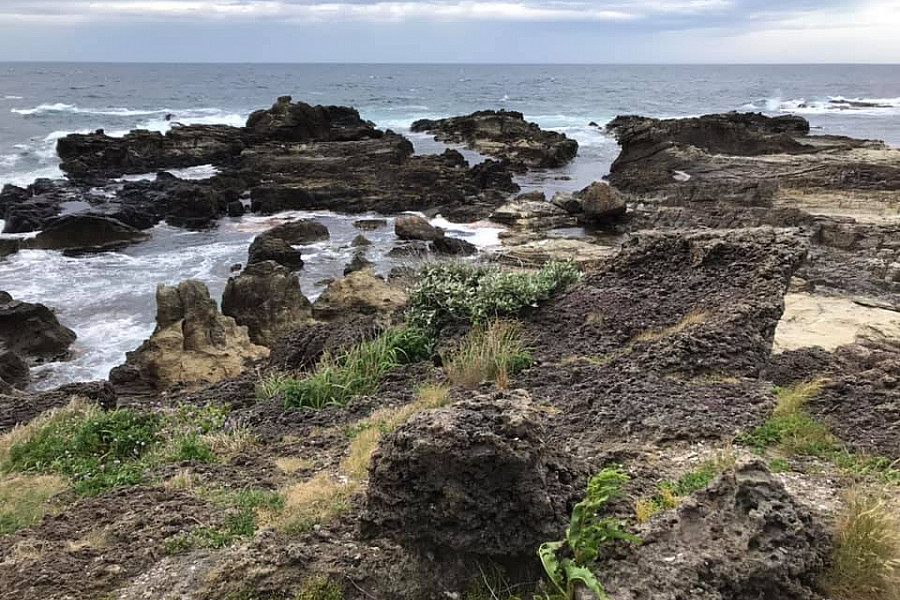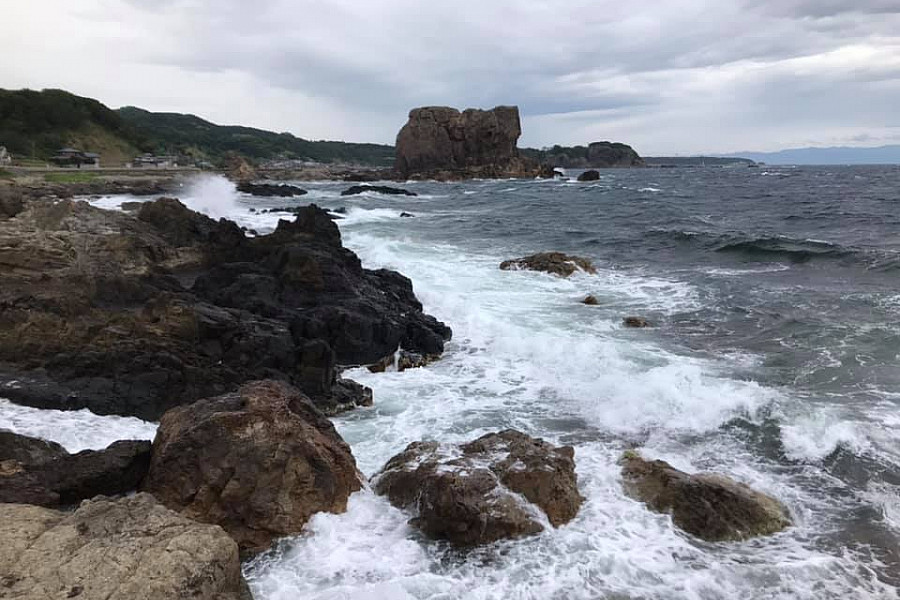Related Links
Landscapes in Transition: Sustainability in Japan’s Rural North
In Landscapes in Transition, students study the intersection of landscape, tourism, and rural culture.
The Program
Rural areas in Japan face the two-pronged challenge of depopulation and aging, leaving many communities struggling to survive. Increasingly communities are looking to cultural and natural heritage tourism as a means of bolstering resilience. The Rural Japan in Transition project is focused on rural sustainability in Akita Prefecture. Akita, in the northwest corner of the main island of Honshu and the fourth largest prefecture in Japan, is undergoing the fastest depopulation of any place in the country.
In 2023, Beloit students, guided by the Rural Japan co-directors Susan Furukawa (Japanese) and Jim Rougvie (Geology), explored the intersection between geoheritage and cultural heritage in the Oga Peninsula in order to understand the role that they can play in promoting rural sustainability. Oga is home to the Oga Peninsula-Ogata Geopark, a Japanese National Geopark. It is also home to the Namahage ritual in which young men reenact New Year’s Eve visits by ogre-like deities in cultural practices that are included on the UNESCO Intangible Cultural Heritage of Humanity list. Students investigated geoheritage and the roles governmental departments, tourism associations, and community members play in balancing education, conservation, and economic development goals.
In 2018, students investigated the role of agricultural tourism in maintaining culture and landscapes in Semboku-shi. Through participant observation in farm-home stays, semi-structured interviews with green tourism business owners, and briefings by local government officials, ten students learned how support from various community organizations and increased participation in farm home-stays helps promote rural sustainability.
Students enrolling in Landscapes Japan courses will explore issues related to rural sustainability in the natural sciences, arts and humanities, and social sciences. While emphasis will be placed on questions around sustainability in Japan’s rural north, opportunities for comparative studies, including rural sustainability in the Midwest, will be possible.
Related Courses
To be eligible for field studies, students are encouraged to take one or more of the following courses.
- ECON/ENVS 205 Environmental Economics
- EDYS 276, East Meets West
- EDYS 271 Ecology, Development, and Education
- ENVS 280, Sustainable Cities
- GEOL 100, Earth, Exploring a Dynamic Planet
- JAPN 260, Japanese Women Writers
- JAPN 260, Modern Japanese Fiction
- JAPN 280 Nightmare Japan
- JAPN/ENVS 296, Totoro Saves the World: Miyazaki, Nature, and the Popular Imagination
- JAPN/ENVS 280, Landscapes in Transition: Japan Orientation, Required for field studies
- POLS/HEAL 230 Comparative Health Systems
- POLS/ENVS 246, Global Political Economy
- POLS/ENVS 257 International Politics of Climate Change
- POLS 255, Global Political Ecology
- SOCI 251, Global Family Issues, spring
- Research Methods course (Departments and semesters vary)
The Field Studies in Japan carry 1 unit of credit.
Language Courses
- JAPN 100, First-Year Japanese I, fall
- JAPN 105, First-Year Japanese II, spring
- JAPN 110, Second-Year Japanese I, fall
- JAPN 115, Second-Year Japanese II, spring
- JAPN 200, Third-Year Japanese I, fall
- JAPN 210, Third-Year Japanese II, spring
- JAPN 215, 220, 230, Fourth-Year Japanese, fall or spring


